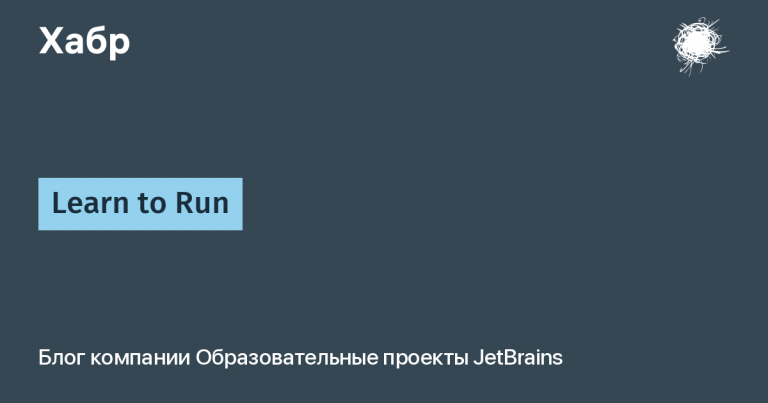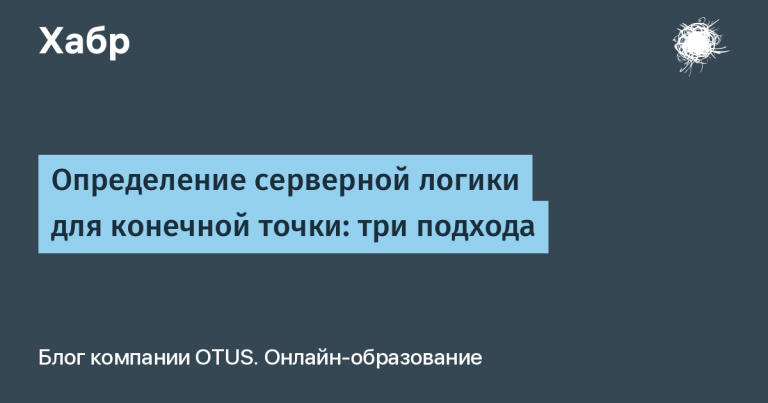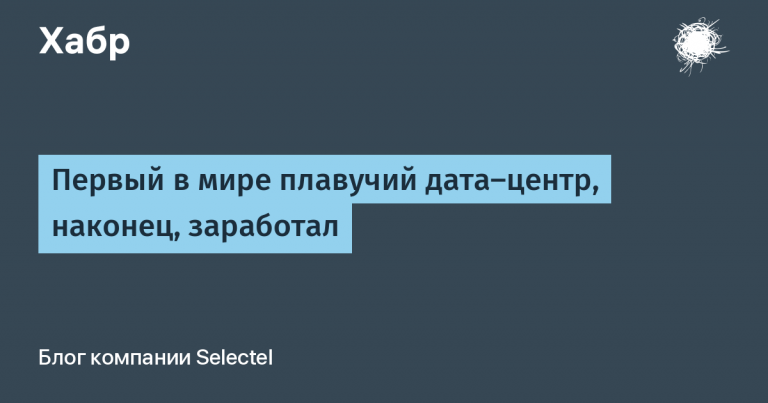How to gain independence, stop being a Middle QA and think like a Senior
Many people assume that the key difference between Middle QA and Senior QA is the level of experience and professional expertise. There is also an opinion that the company should be responsible for the transition from one category to another, providing a clear plan of action. However, in reality, the main difference lies in the ability to make decisions, which in practice is not so simple. The problem for employers is that it is not always clear which applicants are truly at the Senior level. There have been cases in my practice when seniors did not live up to the expectations placed on them, despite successfully passing the interview. At the same time, some Middles, after six months of work, demonstrated that they deserved the position of Senior thanks to their decisions and approach to work.
Let's imagine that your name is Andrei (be Andrei for once, well). Two personalities coexist in your consciousness: Middle Andryushka And Senor Andrey. I want to show you how their approaches to solving problems differ. We also have our Lead on our team, and our senior QA friend Senor Vasya, Developer Petya and other colleagues.

Let's start with the first steps in the process of integration into the team. The team lead gives you basic background information and introduces you to the project. He also reports that Senor Vasya will support you in the adaptation process, hold the first meeting and explain the main points of working in the company. At the meeting Senor Vasya shares some details about the internal workings and testing of the project. You are provided with various documents for review, instructions for setting up your work environment, and information on how to access the necessary resources. You're also given a brief rundown of the task process, and soon after you've set everything up on your brand new MacBook, you're given your first task. In fact, this completes the basic training, and you find yourself in a conditional “open world”, where you have to independently explore and solve assigned tasks. No one will constantly monitor your work, because Senora Vasi their tasks, including checking tasks, working with autotests and implementing new features. Besides, he is tired and plans to take a vacation next week.
Documentation
Having started studying the provided documentation, you, not without difficulty, set up your working environment, install and connect the necessary software and tools. However, it soon becomes apparent that many of these documents either do not provide useful information or are no longer relevant to the current state of the project. This moment becomes a test for two “personalities” in your head:
Middle Andryushki
And
Senora Andrea
.
Middle Andryushka reacts to this situation with some anxiety and bewilderment. He tends to think, “Oh no, I have to tell Lead about this immediately or Senor Vasya, perhaps even someone who wrote documentation in Confluence 4 years ago. How is it that the documentation is so outdated that even the names of the projects in it do not match the current ones, we don’t even use GitLab anymore and have switched to other tools for syncing our code!” The thought is in his head that it is difficult to work without clear instructions and updated documentation.
Senor Andrey, on the contrary, perceives this as a challenge that will only strengthen his professional skills. His thought: “Well, it looks like we’ll have to figure it out on our own. There's no time to complain about outdated instructions. I will find the information I need, even if I have to consult all possible sources. And when I figure it out, I’ll make notes on how everything actually works. And perhaps in a month I will be able to offer an updated version of the documentation or even write it from scratch so that it accurately reflects the real state of things in the project.”
So you are faced with a choice between the approach Middle Andryushkiwho seeks guidance and support from others, and Senora Andreawho sees a problem as an opportunity for personal and professional growth, is ready to independently look for solutions and share his work with the team.
Tasks
When it comes to tasks, the basic approach between Middle and Senior doesn't change much. You continue to check tasks in accordance with the workflow, not forgetting to clarify the details with the developer if something is not clear. And in general, we simply approach testing responsibly, do not miss details, do our work conscientiously, and improve the quality of the product. Again, we leave useful bookmarks, information and notes that will help us in the future. And now the problem is closed, what to do next?

Middle Andryushka sees that he has run out of tasks. His dashboard is empty and Senor Vasya is in no hurry to take on new tasks. His first reaction is to turn to Senor Vasya with a request to assign him new tasks: “I don’t have any problems, give me something.” This reflects a certain passivity and expectation that others should be responsible for filling his workday.
Senor Andrey in a similar situation it acts differently. He will not wait until tasks are assigned to him, but will independently look into the team’s general task pool or backlog to find something to do, or he will go and clarify this information and then take a task for himself according to the team’s priorities.
The senior understands that the work of a QA specialist is not limited only to testing that has already been completed. Even if all the tasks are tested and automated, he will find a new direction for his work – perhaps developing a new tool to improve the workflow or updating the documentation to reflect the current state of the project. The point is that the senior sees opportunities for development and improvement of the project even when at first glance it seems that “everything is done.”
Autotests
In a situation with autotests
Middle Andryushka
encounters a problem: the test is broken. His first reaction is to turn to Senor Vasya for help or
To the developer Petya
, explaining the situation and providing necessary details such as a description of the error and stack trace. Middle expects one of his more experienced colleagues to help him understand and fix the problem.
Senor Andrey, faced with the same problem, also seeks help, but his approach to the solution is deeper. He not only waits for a solution from others, but also actively tries to understand why the test broke. Senor Andrey analyzes the code, checks the state of the master branch or build, studies the history of test crashes, its stability, and looks for other possible causes of failure. Even if in the end Developer Petya will fix it, Senior has already taken an important step in trying to figure out the problem on his own. If it turns out that the cause of the failure is not related to the code Developer Petya, Senor Vasya, relying on his many years of experience, will quickly find and fix the problem. But the most important thing is Senor Andrey demonstrates initiative and the desire to solve problems independently, which is an important quality for the development and deep understanding of the project. If he himself can find the cause and correct it, this will be a significant contribution to his professional growth and understanding of the project.
Autotest monitoring
You, Andrey, have been entrusted with monitoring autotests. Congratulations, a good step towards becoming a Senior. After running the tests, everything seems perfect: the monitoring results are green, the autochecker confirms that there are no errors in your component.
Middle Andryushka
satisfied with the results, is ready to mark all the points as checked, believing that everything was done flawlessly the first time, although
Senor Vasya
he said something about the need to periodically re-run tests.

However Senor Andrey approaches this task with greater criticality. He notices that the situation looks too good to be true and decides to investigate further. The senior does not blindly trust the autochecker and decides to independently verify the correctness of the results. He examines data about errors on the infrastructure, contacts the release team chat, where he learns about possible errors in the autochecker, which incorrectly interprets the results, turning them all green. The senior also checks the status of launches in TeamCity, where he detects problems that require attention.
This moment demonstrates that the senior is able to see beyond the obvious, using in-depth analysis to fully understand the situation. This does not imply a mistake on the part of Middle, who acted according to established procedures, but Senior's approach, including critical thinking and initiative for additional review, is the key to better understanding the project and preventing potential problems.
Metrics and metrics
Today you have been given the responsibility of monitoring metrics, and you are also on duty, monitoring for errors. You have already read the recommendations and videos from
Senora Vasi
, where he explains in detail what aspects you need to pay attention to. When you discovered an error, you reported it immediately
To the developer Petya
and noted this in the documentation, indicating the time frame for correction. But in the process, you noticed two more errors that were missed by the duty officer
Developer Kolya
(and you can’t be fooled that easily, we also have Kolya) the day before. While this seems like Kolya's problem, the situation highlights the difference in approach between Middle and Senior.
Middle AndryushkaHaving completed his part of the work, he can consider that his task is completed. He acts according to established rules and instructions. However Senor Andrey will not stop there. He will wonder why these errors were missed and try to find the root of the problem. The senior will go further and turn to Kolya for clarification, trying to understand the reasons for his oversight. Perhaps Kolya encountered an emergency or simply missed the moment, but Senior will try to find a way to prevent such miscalculations in the future.
The point is that Senior sees his role not just in completing tasks on the list, but also in improving processes, preventing errors and developing the team. He understands that documentation is not always absolute and requires constant updating and addition, based on new experience and cases. The senior is ready to take the initiative, share knowledge and make suggestions for optimizing work, making monitoring not only more effective, but also convenient for the entire team.
Results and conclusions
Independence. The key idea is that if you find flaws in processes or see that something is outdated or broken, you need to be proactive. If Middle encounters a problem and cannot cope on his own, he will likely turn to
Senor Vasya
. In reply
Senor Vasya
, perhaps, will help deal with the situation at once or tell you who to turn to for help. Unlike Middle, Senior will not stop there and will find (or try to find) a way to solve the problem completely.
When it comes to task performance, even if the instructions in a conditional autotest seem precise and detailed, it's always worth looking for ways to improve it, especially if you've noticed potential problems or instability in similar tests. This process may trigger a discussion with Señor Vasya, who will either be skeptical of the proposed changes or recognize their value. The main thing here is not a specific decision or its implementation, but your approach to the task and the desire to do the job better not only for yourself, but also for future colleagues.

Conclusion: It is important not to be afraid to make independent decisions, to look at problems and tasks more broadly and deeply, to think critically, not to look for a direct and established path, not to hope that all processes are perfectly structured and you must work strictly within their framework. Don’t isolate yourself and don’t be afraid to make mistakes. But after an error, it is necessary to draw conclusions and look for solutions that can subsequently avoid their occurrence in the future. A Senior who regularly makes mistakes and does not take into account previous experience may be less valuable to the team than a Middle who shows responsibility and a desire for self-improvement.
For Senior, hard skills and good expertise are still important. I just wanted to show with small examples how, with a fairly good and strong technical background, you can still have different approaches to solving certain problems.





